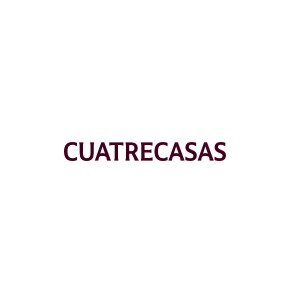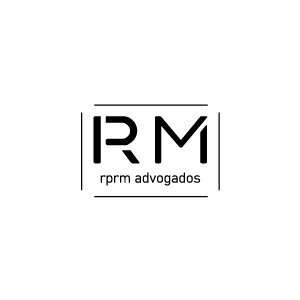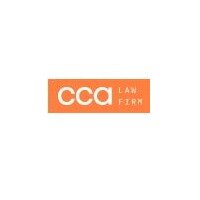Best Land Use & Zoning Lawyers in Porto
Share your needs with us, get contacted by law firms.
Free. Takes 2 min.
Free Guide to Hiring a Real Estate Lawyer
List of the best lawyers in Porto, Portugal
About Land Use & Zoning Law in Porto, Portugal
Land Use and Zoning Law in Porto, Portugal, is governed by a complex framework that includes national, regional, and municipal regulations. These laws regulate how land can be developed and used, which affects urban planning, environmental protection, and economic development. In Porto, zoning regulations are designed to balance urban growth with cultural preservation, ensuring that the city's rich historical heritage coexists with modern development. Understanding these laws can be crucial for property owners, developers, and residents who are planning new construction, renovation, or land purchase.
Why You May Need a Lawyer
Seeking legal advice in the realm of Land Use and Zoning can be important in various situations. For instance, you might need a lawyer if you are purchasing land and want to fully understand zoning restrictions, planning to develop property and require permits, facing disputes with neighbors over land use, looking to appeal a zoning decision, or aiming to change the zoning classification for a property. Lawyers specializing in this field can offer guidance to navigate the regulatory landscape and ensure compliance with local laws.
Local Laws Overview
In Porto, key aspects of the local laws that concern Land Use and Zoning include:
- General Urban Development Plan (PDM): This sets the guidelines for land use, urban planning, and environmental conservation.
- Building Regulations: These rules dictate standards for construction, safety, and aesthetics to preserve the architectural integrity of the city.
- Historic Preservation Ordinances: Laws designed to protect Porto's cultural heritage areas, limiting modifications that can be made to historical buildings or sites.
- Environmental Protection Laws: Regulations that safeguard natural resources during land use planning and development.
Frequently Asked Questions
What is zoning?
Zoning is a tool used by the government to control and direct the development of property within its jurisdiction, assigning specific areas for residential, commercial, industrial, and other uses.
How can I find out the zoning of a property in Porto?
The zoning classification of a property in Porto can be obtained from the city’s Urban Planning Services or through consultation with local real estate experts or legal professionals familiar with local regulations.
Can zoning laws affect property values?
Yes, zoning laws can influence property values by determining what types of structures can be built and what activities can be conducted, thereby impacting the area's overall attractiveness and utility.
Can I challenge a zoning decision?
Yes, it is possible to challenge a zoning decision through an appeal to the appropriate municipal authority or through legal action, often requiring the assistance of a legal professional for guidance and representation.
What are the penalties for non-compliance with zoning laws in Porto?
Penalties can include fines, mandatory alterations, cease and desist orders, or even demolition of unauthorized structures, depending on the severity of the non-compliance.
How can zoning laws affect my business plans?
Zoning laws can impact your business operations by restricting the type of business activities allowed in the area, affecting opening hours, signage, and necessary permits for operation.
Are there special zoning considerations for historic areas in Porto?
Yes, historic areas are subject to additional regulations aimed at preserving architectural integrity, including restrictions on facade changes, building materials, and structural modifications.
What is a variance and how can I obtain one?
A variance is an exception to a zoning ordinance, allowing the property owner to use the land in a way not typically permitted by the current zoning. To obtain a variance, you must file an application with the local planning department and demonstrate a valid reason for the exception.
How does land use planning affect environmental conservation?
Land use planning considers various environmental factors to ensure that development projects do not harm natural resources, implementing measures like green spaces and sustainable construction practices.
Do I need a permit for renovations on my property?
Yes, permits are typically required for significant renovations, especially in zones with strict building or historical preservation codes. Consult the local municipal office or a legal advisor for specific requirements.
Additional Resources
For further assistance, you may consider contacting the following resources:
- The Municipal Chamber of Porto's Urban Planning Department: Provides detailed information on zoning and land use applications.
- Institute of Housing and Urban Rehabilitation (IHRU): Offers guidance on urban development and housing rehabilitation projects.
- Professional associations of lawyers specializing in land use and zoning.
Next Steps
If you require legal assistance in Land Use and Zoning in Porto, Portugal, the following steps can be helpful:
- Consult a specialized lawyer with experience in Porto's zoning laws to discuss your situation and potential legal routes.
- Research your specific zoning or land use concern to gather relevant documents, plans, and maps that might be necessary for your legal consultations.
- Contact the municipal authority for initial guidance and understanding of the specific regulations that pertain to your needs.
- Seek consultations with multiple professionals to gain a broad understanding of possible legal strategies and to compare services.
Lawzana helps you find the best lawyers and law firms in Porto through a curated and pre-screened list of qualified legal professionals. Our platform offers rankings and detailed profiles of attorneys and law firms, allowing you to compare based on practice areas, including Land Use & Zoning, experience, and client feedback.
Each profile includes a description of the firm's areas of practice, client reviews, team members and partners, year of establishment, spoken languages, office locations, contact information, social media presence, and any published articles or resources. Most firms on our platform speak English and are experienced in both local and international legal matters.
Get a quote from top-rated law firms in Porto, Portugal — quickly, securely, and without unnecessary hassle.
Disclaimer:
The information provided on this page is for general informational purposes only and does not constitute legal advice. While we strive to ensure the accuracy and relevance of the content, legal information may change over time, and interpretations of the law can vary. You should always consult with a qualified legal professional for advice specific to your situation.
We disclaim all liability for actions taken or not taken based on the content of this page. If you believe any information is incorrect or outdated, please contact us, and we will review and update it where appropriate.

















